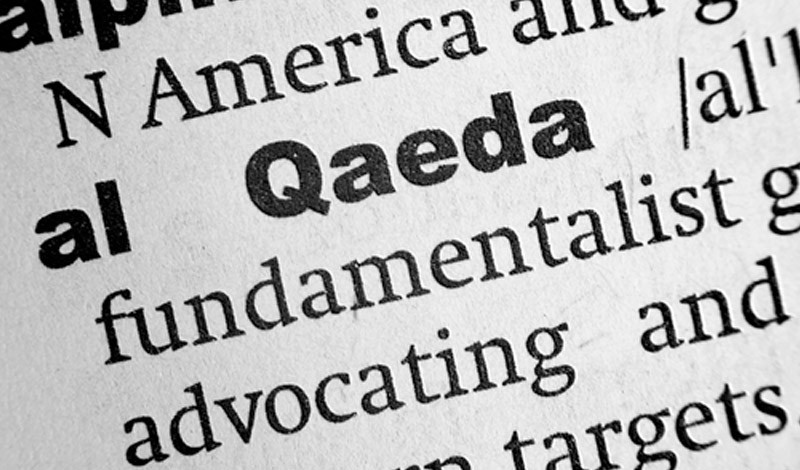UAE seeks to eliminate Al -Qaeda in Yemen
The rapid and consecutive maneuvers currently led by UAE forces in the governorate of Abyan in Yemen to get rid of Al-Qaeda came after a strong blow to the group in Hadramout and Shabwa governorates in what is considered an Emirati campaign to eliminate Al-Qaeda in the South of Yemen. But the first operations in Hadramout and Shabwa haven’t been completed yet. Both governorates still embrace Al-Qaeda remnants, and the group has no intention at the moment to leave the provinces entirely or stop fighting.

- by Dr. Haifa AlMaashi ,
- Sunday, 24th September, 2017
Al-Qaeda did not completely disappear from Hadramout or Shabwa and repeating the same strategy in Abyan is an essential part of the military campaign to get rid of all the members of the organization, but the campaign has led to the escape of many terrorist elements to seek shelter in the neighboring provinces specially Hadramout to re-establish the nucleus of a new entity that is committed to the ideology of AQAP. This indicates that the military campaign alone is not enough, and additional measures are needed to besiege the fugitive members of AQAP.
The UAE's experience in eliminating al-Qaeda in Hadramout may be a pioneering one in countering entities of non-state actors in the Middle East, particularly in the conflict zones of the Arab Spring countries, though the experience itself is not yet finalized in light of the continued threats of Al-Qaeda in Hadramout until this moment.
When the Coalition forces led by joint forces (Yemenis and Emiratis), backed by an extensive American air cover and logistics cooperation headed to Mukalla in April 2016 to fight Al-Qaeda, the operation started with a strong military strike as the aircraft led an intensive attack on Al-Qaeda sites and managed to liberate Mukalla and vital places such as airport, the port, and the republican palace after one year of occupation.
Breaking into Mukalla was similar to a large degree to the attack led by Al-Qaeda itself in occupying the city in May 2015. Al-Qaeda’s invasion was launched through the land while the coalition forces launched its attack to liberate the city via land, air and sea Which led to the withdrawal of the organization after limited battles with the coalition forces, that managed to distance the city from big lose in life and property.
Some see that al-Qaeda left Mukalla by its own will after the intensification of confrontation with the coalition forces, as it did before in 2012 in Zanzibar in Abyan governorate.
What raises eyebrows is the rapid withdrawal of AL Qaeda!
Who is responsible for such withdrawal? Is it the result of Coalition’s planning, specifically the UAE-Yemeni joint action in securing the entry of their forces and their success in confronting Al-Qaeda, through strengthening local relations with tribal entities within the city represented by sheikhs and imams of mosques, some of whom are linked to al-Qaeda through the “Domestic Council” at the time? Or is it a tactic adopted by Al Qaeda itself when besieged in areas of confrontation?
In a statement of the former leader of Al-Qaeda in Yemen(He was killed by an American drone in 2015), Nasser al-Wahishi, pointed out[1] that adopting a peaceful approach to securing their presence within Yemen's territories provides them with the required popular support and contributes to the continued strength of the organization and its superiority over the various militias, especially during conflicts.
In fact, al-Wahishi had advised the affiliates of the organization to connect with the locals and their needs and not to declare a state until they acquired the ability to meet the demands of citizens and protect them adequately!
This is what actually took place in Mukalla. After the invasion of Al-Qaeda in 2015, the Sharia law was applied partially as well as the declaration of a Commission known as the “Hesba” to follow daily issues among citizens with the confirmation of offering services to them to assert the effectiveness of the organization and its management.
After April 2016, the organization may have lost its actual presence inside Mukalla, which was a real defeat for it, but from its own perspective it tried to preserve its spiritual presence, which derives from the citizens themselves to confirm that it is better than other forms of successive governments inside the city whether local or central authorities before 2015 or even after that time.
Does this mean that there is a consensus over these ideological trends among the leaders of the organization within Yemen and specifically in Hadramout? Was the approach led by Nasser al-Wahishi adopted by Khaled Baterfi (another leader in the organization based in Mukalla at that time)?
Back then, the character of al-Wahayshi as the (Amir) of al-Qaeda in the Arabian Peninsula and the second leader after al-Zawahiri was evident in contrast to the character of Baterfi. The latter leadership was rather ambiguous even in the way he managed things inside the city after its occupation, especially after the death of al-Wahishi and seizing power over the whole city. Many contradictions took place that have distorted the organization in the eyes of its supporters in Hadramout, especially in terms of financial aspects, and the seizure of the Central Bank in Mukalla in addition to the seizure of large oil reserves in the port of Mukalla which formed financial funding for the organization during that Period.
However, the applied scenario was largely in line with the direction of the main Al Qaeda leadership.
Al-Qaeda leadership's claims with regard to the peaceful approach are full of contradictions and inaccuracies. The experience of its departure from Abyan 2012 confirms that al-Qaeda has adopted an offensive strategy that include assassinations and continuous bombings in spite of that the fighters distributed leaflets to apologize to the citizens for dragging the city into the conflict and for the damage done to their properties.
The UAE in its attempt to confront Al-Qaeda in Hadramout was not entirely dependent on the American approach but it relies on other tactics. The American policy in eliminating Al Qaeda depends entirely on using drone to eliminate AlQaeda leaders, however UAE in Hadramout fought AlQaeda with its own weapon by winning the support of the local community, not just its tribal and religious leaders.
This is what terrify AL Qaeda the most!
The UAE-US cooperation to oust al-Qaeda from Mukalla was the result of the Pentagon and CIA efforts that were launched by an intensive drone attack launched before the successful invasion of the UAE and Yemeni forces of Mukalla in March 2016. Hadramout saw the most number of drone strikes during that period, The massive air strike in the town of Hajar[2] in Hadramout, targeting AQAP training camp where the strike killed more than 50 al-Qaeda fighters, is the first precedent of US strikes on al Qaeda camps in Yemen, particularly in Hadramout.
The two allies, United Arab Emirates and the United States shared the same goal in eliminating AQAP in Yemen, but the motives are quite different. The American main purpose is to put an end to AQAP threats outside the borders of Yemen and specifically its threat to US interests inside and outside the United States while the UAE main motive is securing the eastern Front of Yemen and paving the way for new development experience within the region.
The UAE's maneuver to eradicate Al-Qaeda in Hadramout was effective but has not come to an end yet.
Affiliates of the group are still scattered in many areas inside the province, especially outside the cities or in the valleys and mountains. Some of them take from the neighboring provinces a safe temporary cache to regroup and start again.
The current approach adopted by al-Qaeda to weaken the success of the UAE trial in eliminating the organization inside Hadramout is to exploit the USA-UAE alliance in order to distort the image of the UAE in front of the local community especially within the Salafi sects, not only in Hadramout but also in Abyan, Shabwa, and Al Baidha. This has become more acute after the increase in civilian casualties as a result of the American drone attacks.
The UAE's experience to destroy Al-Qaeda in Hadramout would achieve long-term goals in rooting out the organization if it focuses on the citizens' roles in countering al-Qaeda and putting an end to ongoing recruitment among youth. "If the citizens and the security and military apparatus are not in agreement, the security file will not work," said Awadh Keshmim, a veteran journalist lives in Hadramout.
This applies specifically on the vast Hadramout valley, which includes more than 16 districts and where Al Qaeda cells continue to pose a significant threat to the security of the province as a whole.
Al-Qaeda is currently directing its terrorist activities through specific operations to terrorize citizens and weaken the position of government representatives and coalition forces, such as the assassination of officials or bombings camps belonging to the Hadrami elite (that is Trained and equipped by the UAE).
The complexity of the situation in the Hadramout Valley geographically and socially requires caution and attention: First problem is the unwillingness of citizens to cooperate with the security and military forces, and second is the absence of integrated security control over the valley especially since most of the roads , reefs and valleys twisted and complex and most of the military force are stationed in the cities and on the main roads.
The focus on Hadramout coast since the start of the military operations led to the retreat of those groups to search for caches in the valley, which led to the proliferation of several cells there.
Confronting Al-Qaeda terrorism in Hadramout must adopt a balanced policy between the coast and the valley.
It is important to keep in mind that the most threatening affiliates in the organization are Hadramis not foreigners. The best way to deal with them is to put an end to their influx and to purge the environment of al-Qaeda's ideology by adopting a counter-ideology that embraces the peaceful values of jihad away from violence and harming others.
The UAE's experience in confronting al-Qaeda in Hadramout, Shabwa, and Abyan has not yet ended. This means that confrontations will continue, but the plans may vary from one governorate to another. Therefore, the experience is still young and it needs periodic evaluation and review so that the AQAP can be eliminated definitively and not only in the short term.

Dr. Haifa AlMaashi
Director of the Geo-strategic Studies Division (former)
Read More
Areas of Expertise
- Policy analysis
- Media writing
- Qualitative research
- lecturing
Education
- PHD in Mass Communication, University of Cairo, Faculty of Mass Communication, Egypt. 2004
- Master’s in journalism, University of Colorado Faculty of Journalism, Boulder, USA.1990
- Bachelor of Political Science, University of Kuwait Faculty of Economic and Political Science, Kuwait. 1989
Bio
Haifa Ahmad Al Maashi works as the director of geo-strategic studies division at Dubai Consultancy Research and media Center. She obtains a PhD in journalism from the University of Cairo- Faculty of media (2004) First class honors, has a master`s degree in journalism from the University of Colorado - Boulder in the United States (1990) and a BA in Political Science from the University of Kuwait 1989. She is specializing in the field of political media and has worked as an assistant professor at the University of Aden 1991-2010,( Journalism and Media department). Has several published lectures in the field of media and political development, the role of media in social change, communication theories and the new media (2004). Also has articles published in several newspapers and websites. Her main concern focuses on the detection and analysis of political crises around the world and examine its implications on the reality of the region politically and economically.

